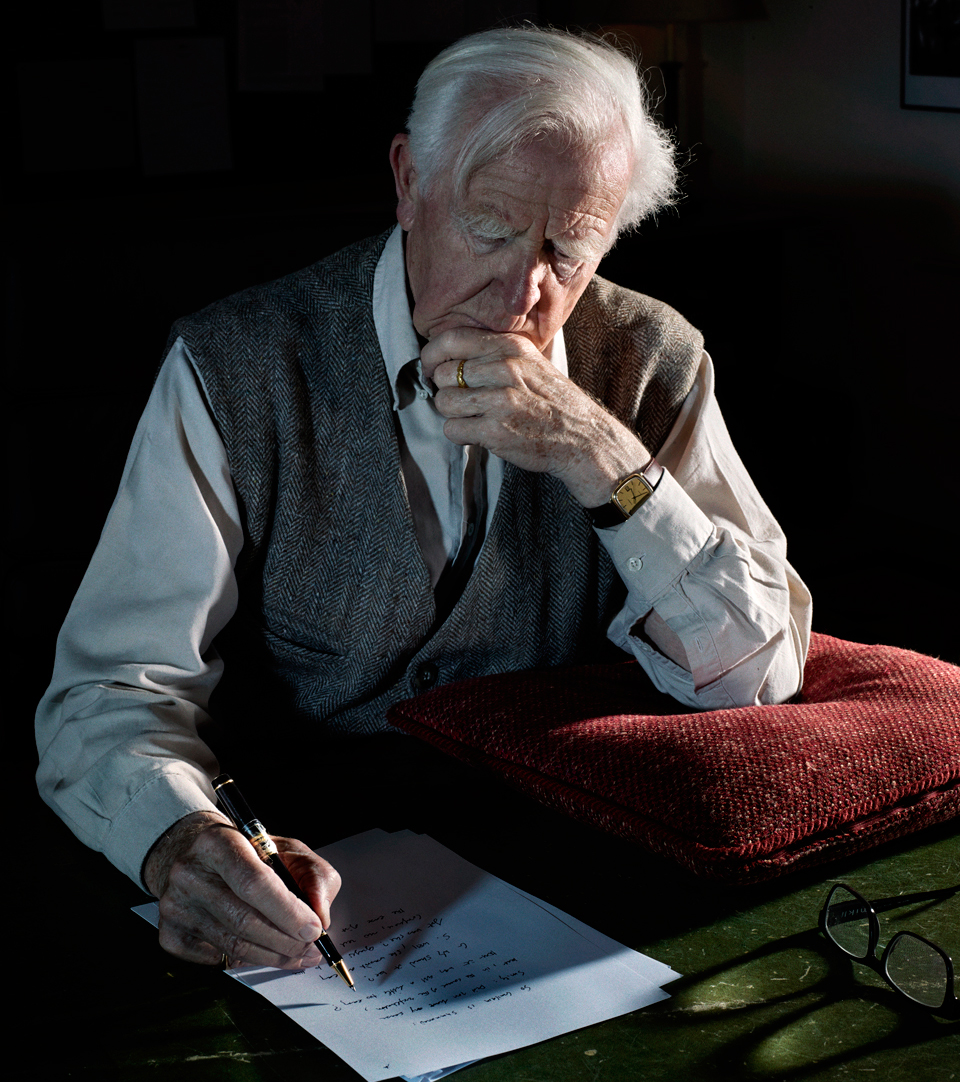- Home |
- Search Results |
- Inside the secret pages of John le Carré’s new book

I finished reading the manuscript of John le Carré’s new novel the day before Donald Trump was elected President of the United States. It seems very wrong that Donald Trump should so constantly intrude in our daily lives but, looking back now, the timing feels significant.
Le Carré is very discreet about his work until the day he delivers the finished manuscript, and so I knew very little about the new novel’s story or its setting before I started reading. I discovered a novel as tense, as alive, as intricately plotted as his great work, The Spy Who Came in from the Cold. A Legacy of Spies looks back to that novel and to Tinker Tailor Soldier Spy while, at the same time, being so very much about the present. It thrills in one moment but is also capable of breaking your heart. It is astonishing the way le Carré is able to weave together past and present, to constantly play with what we do and don’t know, what the characters know and don’t know. He is able to define a character absolutely and then unravel him before our eyes.
I first encountered le Carré’s writing when I was a student over twenty years ago. It was a thrill to return, now as le Carré’s publisher, to the characters of his great novels, to see Smiley again, to spend time with Alec Leamas, after that first encounter.
A Legacy of Spies asks questions about how we reckon with the past and with our political history. As with all of le Carré’s fiction, it brilliantly illuminates human folly and our frailty. The pain, the clarity, of hindsight is so beautifully rendered showing how the passage of time fully exposes acts of violence, framed as utterly necessary at the time, for what they are.

As with all of le Carré’s fiction, it brilliantly illuminates human folly and our frailty
As the light faded outside on that November evening, I realised that this had been one of those rare days I had spent doing exactly what I imagined I would do as an editor when I first started in publishing: simply sitting in a room and being completely transported by a remarkable manuscript fresh from the author’s hand. I felt enormously lucky to be one of the first people to read A Legacy of Spies.
The next morning I woke to the result of the American election. Le Carré’s novel was still very fresh in my mind. I went back to the book and back to a line that had struck me on first reading: “What proportion of our human feelings can we suppress, before we cease to feel human?”
It felt like a call to arms, a reminder that really the only thing left to us, particularly at extraordinary moments in our history - whether during the Cold War, or right now - is our humanity.